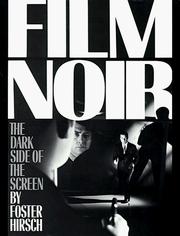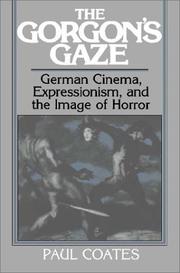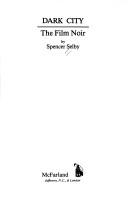| Listing 1 - 8 of 8 |
Sort by
|
Book
ISBN: 9782367161969 Year: 2017 Publisher: La Madeleine : LettMotif,
Abstract | Keywords | Export | Availability | Bookmark
 Loading...
Loading...Choose an application
- Reference Manager
- EndNote
- RefWorks (Direct export to RefWorks)
Quand on pense au cinéma noir américain des années Obama il nous vient tout de suite à l'esprit des titres comme La Couleur des sentiments, Le Majordome, Selma, Django Unchained ou 12 Years a Slave tous sortis entre 2009 et 2016. Beaucoup de films évoquant l'histoire des Afro-Américains en somme (l'esclavage, le racisme, la ségrégation, la lutte pour les droits civiques). Faut-il y voir une simple coïncidence ou une véritable tendance ? Comment en effet ne pas imaginer que l'élection d'un Noir à la tête d'une nation travaillée depuis toujours par la question raciale n'a pas eu un effet sur la production de films ? Ne parle-t-on pas d'ailleurs communément d'un “cinéma reaganien” pour évoquer la production hollywoodienne des années 80 (Rocky, Rambo, Top Gun...) - synonyme de blockbusters musclés, manichéens et conservateurs - alors pourquoi ne pas parler d'un “cinéma obamanien” ? En explorant les grandes tendances de la période, ce livre tentera ainsi de comprendre comment le cinéma noir de ces dernières années a été influencé thématiquement, voire idéologiquement, par la présidence de Barack Obama.
Cinéma noir américain --- Cinéma -- Aspect social --- Histoire et critique --- Aspect social --- Blaxploitation films --- Motion pictures --- Cinéma --- Social aspects --- Films noirs américains --- Cinéma noir américain --- Cinéma --- Histoire et critique.
Book
ISBN: 3741000752 3894729473 Year: 2020 Publisher: Schüren Verlag
Abstract | Keywords | Export | Availability | Bookmark
 Loading...
Loading...Choose an application
- Reference Manager
- EndNote
- RefWorks (Direct export to RefWorks)
Long description: Im heutigen Zeitalter der Unsicherheit und Angst florieren konspirative Fantasien zuhauf. Verschwörungsfiktionen haben insbesondere in Film und Fernsehen Konjunktur. Im Zentrum des vorliegenden Bandes steht daher die Frage nach der medialen Konstruktion der kollektiven Imagination einer durch Verschwörung gesteuerten Welt. Dabei wird die These vertreten, dass die konspirationistische Fantasie als imaginäre Lösung und Reaktion auf die postmoderne Zersplitterung des Wissens zu begreifen ist, nachdem Jean-François Lyotard das Ende der “großen Erzählungen” der Moderne von Fortschritt und Emanzipation deklarierte. Gleichsam als Kompensation für diesen Sinnverlust bietet die konspirationistische Imagination neue, große Erzählungen an, nun freilich nicht mehr als optimistische Aufklärungsteleologie, sondern als dystopisches und mitunter apokalyptisches Narrativ. In der Inszenierung konspirativer und paranoider Szenarien kommt dabei dem Spielfilm eine privilegierte Rolle zu. Für die Gruppierung von Verschwörungsthrillern, paranoiden Dramen und mind-game-Filmen mit zunehmend vergrößerter konspirativer Reichweite hat sich in der Filmwissenschaft der ursprünglich aus der Fankultur stammende Begriff des Paranoiafilms durchgesetzt. Dieses zunehmend bedeutende mediale Phänomen wird hier erstmals umfassend in Theorie und Geschichte poetologisch und hermeneutisch gewürdigt. Im theoretischen Teil des Buches stehen genretheoretische, formale, narrative und motivische Aspekte des Paranoiafilms zur Diskussion, während dazu gleichzeitig die Themen Verschwörung, Paranoia und Verschwörungstheorie besprochen und in Beziehung gesetzt werden. Im historischen Teil werden in chronologischer Abfolge vier paradigmatische Narrative untersucht: der vorwiegend psychologisch ausgerichtete Meisterverbrecherfilm der 1910er bis 1930er Jahre; die paranoiden Spielarten des Film Noir in den 1940er und 50er Jahren, unter Einbezug des postklassischen Noir der 60er Jahre; der moderne, soziologische Verschwörungsfilm der 1960er bis 80er Jahre, in dem die Konspirationen zunehmend systemisch und unsichtbar werden; und schließlich die mind-game oder mindbender genannten Filme seit den 1990er Jahren, die sich im Zeichen der Metafiktion mit ontologischen und kosmologischen Verschwörungen beschäftigen. Zentrale Topoi sind unter anderem Mind Control, “Gehirnwäsche” und Überwachung. Nicht zuletzt geht es dabei auch um eine Allegorisierung der jeweils vorherrschenden Medien und ihrer Wirkungsmacht.
Verbrecher --- Fake News --- Film Noir --- Mind-Games --- Cinéma noir --- Dark crime films --- Film noirs --- Films noirs --- Noir films --- Crime films --- News, Fake --- Disinformation --- Hoaxes --- Journalism --- Nonbooks, PBS / Sachbücher/Musik, Film, Theater/Film --- Filmgenres
Book
ISBN: 028980048X 0289801168 Year: 1992 Publisher: London : Studio Vista,
Abstract | Keywords | Export | Availability | Bookmark
 Loading...
Loading...Choose an application
- Reference Manager
- EndNote
- RefWorks (Direct export to RefWorks)
Films noirs --- Film noir --- Histoire et critique --- History and criticism --- 791.43-1 --- #SBIB:309H1326 --- Cinéma noir --- Dark crime films --- Film noirs --- Noir films --- Crime films --- Filmkunst. Films. Cinema--?-1 --- Films met een amusementsfunctie en/of esthetische functie: genres en richtingen --- 791.43-1 Filmkunst. Films. Cinema--?-1 --- Histoire et critique.

ISBN: 0306802031 Year: 1981 Publisher: New York, NY : Da Capo,
Abstract | Keywords | Export | Availability | Bookmark
 Loading...
Loading...Choose an application
- Reference Manager
- EndNote
- RefWorks (Direct export to RefWorks)
Film --- United States --- Film noir --- -Gangster films --- -Bandit gangster films --- Gang films --- Gangland films --- Hoodlum drama (Motion pictures) --- Mafia films --- Organized crime films --- Outlaw-couple films --- Outlaw gangster films --- Rural bandit films --- Syndicate films --- Syndicate-oriented films --- Crime films --- Cinéma noir --- Dark crime films --- Film noirs --- Films noirs --- Noir films --- Gangster films --- History and criticism --- United States of America
Book
ISBN: 1474412688 147441267X 9781474412674 9781474412667 1474412661 9781474412681 Year: 2017 Publisher: Edinburgh : Edinburgh University Press Ltd,
Abstract | Keywords | Export | Availability | Bookmark
 Loading...
Loading...Choose an application
- Reference Manager
- EndNote
- RefWorks (Direct export to RefWorks)
The first comprehensive collection on the subject of Hong Kong neo-noir cinema, this book examines the way Hong Kong has developed its own unique and culturally specific version of the neo-noir genre, while at the same time drawing on and adapting existing international noir cinemas.
Film noir --- Cinéma noir --- Dark crime films --- Film noirs --- Films noirs --- Noir films --- Crime films --- History and criticism. --- China --- Chung-hua jen min kung ho kuo Hsiang-kang tʻe pieh hsing cheng chʻ --- Hong Kong --- Zhong hua ren min gong he guo Xiang gang te bie xing zheng qu --- Zhonghua Renmin Gongheguo Xianggang Tebie Xingzhengqu
Book
ISBN: 9780810859609 0810859602 9780810873780 0810873788 1282521918 9786612521911 9781282521919 6612521910 Year: 2010 Publisher: Lanham : Scarecrow Press,
Abstract | Keywords | Export | Availability | Bookmark
 Loading...
Loading...Choose an application
- Reference Manager
- EndNote
- RefWorks (Direct export to RefWorks)
The Historical Dictionary of Film Noir is a comprehensive guide that ranges from 1940 to present day neo-noir. It consists of a chronology, an introductory essay, a bibliography, a filmography, and over 400 cross-referenced dictionary entries on every aspect of film noir and neo-noir, including key films, personnel (actors, cinematographers, composers, directors, producers, set designers, and writers), themes, issues, influences, visual style, cycles of films (e.g. amnesiac noirs), the representation of the city and gender, other forms (comics/graphic novels, television, and videogames), and n
Film noir --- Motion picture producers and directors --- Motion picture actors and actresses --- Films noirs --- Producteurs et réalisateurs de cinéma --- Acteurs et actrices de cinéma --- Dictionaries --- Catalogs --- Dictionnaires anglais --- Catalogues --- Dictionnaires --- Crime films --- Producteurs et réalisateurs de cinéma --- Acteurs et actrices de cinéma --- Criminal films --- Cinéma noir --- Dark crime films --- Film noirs --- Noir films --- Motion pictures --- Caper films --- Thrillers (Motion pictures) --- Dictionaries. --- Catalogs.

ISBN: 0521384095 0521063361 1139085905 0511527128 Year: 1991 Publisher: Cambridge : Cambridge University Press,
Abstract | Keywords | Export | Availability | Bookmark
 Loading...
Loading...Choose an application
- Reference Manager
- EndNote
- RefWorks (Direct export to RefWorks)
The Gorgon's Gaze is an interdisciplinary study of recurrent themes in German cinema as it has developed since the early twentieth century. Focusing on pertinent films of the pre- and post-World War II eras, Paul Coates explores the nature of expressionism, which is generally agreed to have ended with the advent of sound cinema, and its persistence in the styles of such modern masters of Film noir as Orson Welles and Ingmar Bergman. In considering the possibility of homologies between the necessary silence of pre-sound cinema and the widespread modernist aspiration to an aesthetic of silence, Coates relates theories of the sublime, the uncanny, and the monstrous to his subject. He also reflects upon problems of representability and the morality of representation of events that took place during the Nazi era.
Film --- Germany --- Expressionism --- Monsters in motion pictures --- Motion pictures --- Expressionnisme --- Monstres dans le cinéma --- Cinéma --- History --- Histoire --- 791.43 --- Film noir --- -#SBIB:309H1320 --- Cinema --- Feature films --- Films --- Movies --- Moving-pictures --- Audio-visual materials --- Mass media --- Performing arts --- Cinéma noir --- Dark crime films --- Film noirs --- Films noirs --- Noir films --- Crime films --- Filmkunst. Films. Cinema --- De filmische boodschap: algemene werken (met inbegrip van algemeen filmhistorische werken en filmhistorische werken per land) --- History and criticism --- 791.43 Filmkunst. Films. Cinema --- Monstres dans le cinéma --- Cinéma --- #SBIB:309H1320 --- Aesthetics --- Expressionism. --- History. --- Monsters in motion pictures. --- History and criticism.

ISBN: 0899501036 Year: 1984 Publisher: Jefferson : McFarland,
Abstract | Keywords | Export | Availability | Bookmark
 Loading...
Loading...Choose an application
- Reference Manager
- EndNote
- RefWorks (Direct export to RefWorks)
791.43.03 --- Detective and mystery films --- -Film noir --- -Gangster films --- -#SBIB:309H1326 --- Bandit gangster films --- Gang films --- Gangland films --- Hoodlum drama (Motion pictures) --- Mafia films --- Organized crime films --- Outlaw-couple films --- Outlaw gangster films --- Rural bandit films --- Syndicate films --- Syndicate-oriented films --- Crime films --- Cinéma noir --- Dark crime films --- Film noirs --- Films noirs --- Noir films --- Police films --- Filmstijlen --- Plots, themes, etc --- Films met een amusementsfunctie en/of esthetische functie: genres en richtingen --- 791.43.03 Filmstijlen --- Film noir --- Gangster films --- #SBIB:309H1326
| Listing 1 - 8 of 8 |
Sort by
|

 Search
Search Feedback
Feedback About
About Help
Help News
News